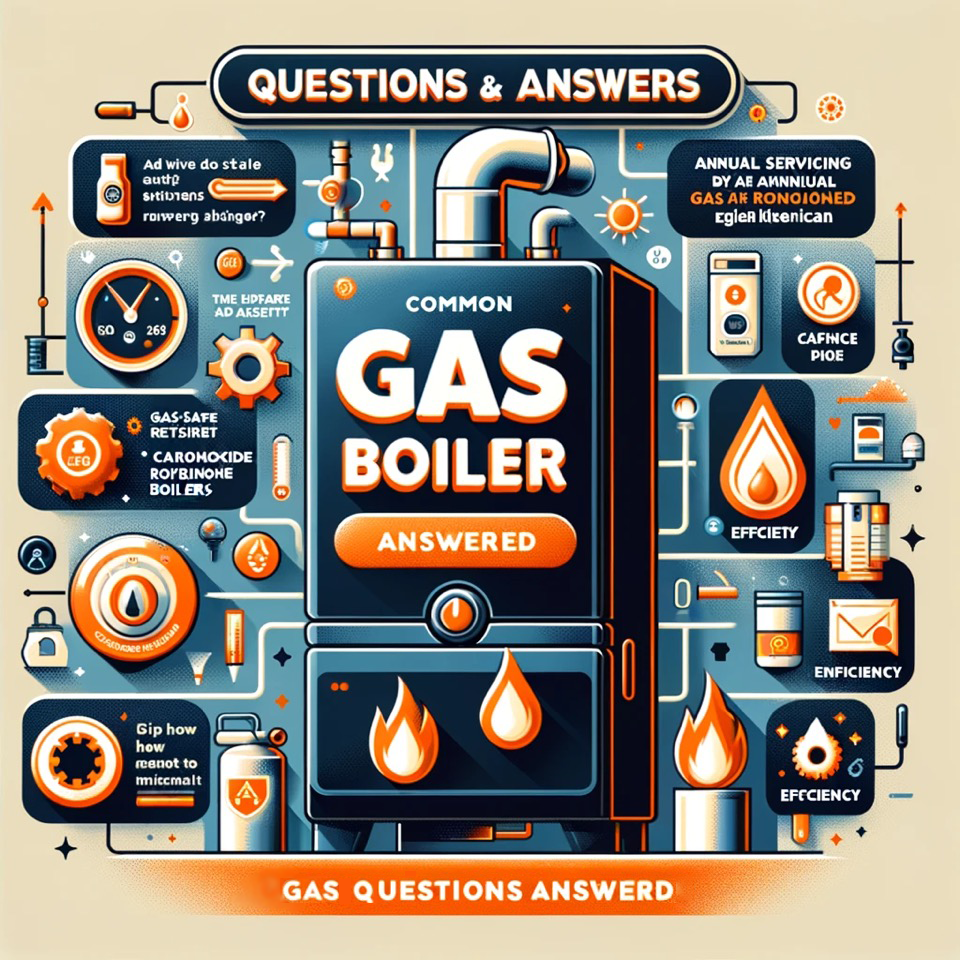Common Gas Boiler Questions Answered: A Guide for UK Homeowners
The boiler FAQ page is new in February 2024 and is expected to have a navigation system to new exciting articles soon.

Gas boilers are a cornerstone of domestic heating and hot water in the UK, providing comfort and warmth through the chilly months. However, their operation, maintenance, and efficiency often raise questions among homeowners. This article addresses the most common gas boiler queries unique to the UK, aiming to demystify these essential household appliances.
How Often Should a Gas Boiler Be Serviced?
UK safety regulations recommend that gas boilers be serviced annually by a Gas Safe registered engineer. Regular servicing ensures your boiler operates efficiently, extends its lifespan, and most importantly, checks for any safety concerns like gas leaks or carbon monoxide emissions. It's also a condition of most warranties.
Can I Install a New Boiler Myself?
No, the installation of gas boilers in the UK must be carried out by a Gas Safe registered engineer. This is a legal requirement to ensure that installations meet strict safety standards. DIY installations can be dangerous, potentially leading to gas leaks, carbon monoxide poisoning, and even explosions. Sometimes leading to requiring an emergency gas engineer.
Why Is My Boiler Making Noises?
Boilers can make various noises, often indicating different issues. A banging or kettling noise usually suggests a build-up of limescale or sludge, while whistling or gurgling could point to air in the system or low water pressure. It's best to consult a professional if your boiler starts making unusual noises.
What Is the Life Expectancy of a Gas Boiler?
The average lifespan of a gas boiler in the UK is around 10 to 15 years, depending on the make, model, and maintenance. Regular servicing and prompt repairs can extend a boiler's life, while neglect can lead to efficiency losses and more frequent breakdowns.
What’s the Difference Between a Combi Boiler and a Conventional Boiler?
Combi boilers provide hot water and heating on demand without the need for a separate hot water storage cylinder or cold water tank, making them ideal for smaller homes with limited space. Conventional boilers, on the other hand, require both a hot water cylinder and a cold water tank, usually located in the loft, and are better suited for larger homes with multiple bathrooms.
How Can I Improve My Boiler’s Efficiency?
Improving your boiler's efficiency can reduce energy bills and environmental impact. Consider insulating your home to reduce heat loss, installing a smart thermostat for better control over heating, and regularly bleeding radiators to remove air. Upgrading to a newer, more energy-efficient model may also be cost-effective in the long run.
Is It Necessary to Have a Carbon Monoxide Detector?
Yes, it's highly recommended to have a carbon monoxide (CO) detector installed near your gas boiler and any other gas appliances. CO is a colourless, odourless gas that can be fatal if inhaled. A CO detector provides an early warning, allowing you to take action to safeguard your household.
Conclusion: Understanding the basics of gas boiler operation and maintenance can significantly enhance the comfort, safety, and efficiency of your UK home. By adhering to safety guidelines, ensuring regular professional servicing, and staying informed about your boiler's operation, you can enjoy the benefits of your heating system while minimizing risks and costs. Remember, when in doubt, always consult a Gas Safe registered engineer for advice and service.